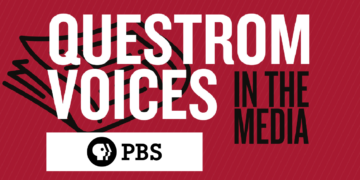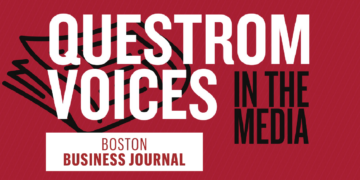Companies are rapidly deploying artificial intelligence to lessen the burden on service employees and create a more streamlined process. Michelle Shell, Visiting Assistant Professor, Operations & Technology Management, shares how they can successfully integrate AI without losing the trust and satisfaction of their customers.
When we encounter the term “artificial intelligence” (AI), many applications may come to mind. Some of us may think of the chatbot or “virtual assistant” we interacted with to get a credit card balance. Some of us may think of asking Amazon’s Alexa or Apple’s Siri to play a favorite song. Others may think of robotic surgeries, self-driving cars, or algorithms that make recommendations as mundane as a movie you might like or as consequential as a medical diagnosis. Accordingly, studies across academic disciplines about these varied uses of AI have shown a wide disparity in our receptivity to artificial intelligence from algorithm aversion to algorithm appreciation. In fact, a recent study demonstrated that chatbot agents, when not disclosed to customers, could perform just as well as a human agent in outbound sales.
To service providers, these technologies offer the potential for a host of operational benefits — lowering labor costs, increasing employee productivity, and improving service accuracy are just a few. And certainly, it’s easy to see why customer satisfaction might improve from getting quicker answers to our service questions or from discovering products that we might love but may not have discovered on our own – or from interacting with an agent that feels better supported in their work. Indeed, the deployment of artificial intelligence in service environments may present a win-win in many cases.
That said, the efficiency gains that companies expect from introducing these automations to customer service encounters may come at unexpected costs. Companies need to consider when and how to introduce these technologies to maximize their efficiency benefits while minimizing customer engagement penalties.
In support contexts where customers may seek expert advice, as was the case in the rapid shift to internet self-installation during the COVID pandemic, automated assistance may not deliver the reassurance that anxious customers need. In a recent laboratory study with my colleague, Ryan Buell (of Harvard Business School), we found that merely providing anxious investors on a self-service technology platform with access to human contact – through a chat feature – was enough to mitigate the losses of confidence they experienced and, in so doing, improve their engagement. And they didn’t have to use the chat feature for engagement to improve. When we are anxious, it helps to know that we can connect with someone if we need.
Researchers have shown that verbal service scripts, where employees are expected to rigidly adhere to prescribed language when conducting customer interactions, are not only detected by customers, but are also more likely to be rated as sounding “robotic” or “unnatural” and may subsequently be associated with both lower levels of employee engagement and lower service quality. We can imagine that those same negative perceptions may carry over when a customer interacts with a virtual agent. This may be perfectly acceptable in situations where we don’t expect to be wowed by an exemplary service experience – like when checking an account balance or getting confirmation that a package has been delivered – but when a service failure has occurred, endlessly pleading with a chatbot to provide the empathy we crave may leave us feeling abandoned by our service providers. This cost – loss of trust – may not be one that companies are willing to pay.
So how can service providers design efficient yet satisfying experiences that build trust while leveraging the promise of artificial intelligence? One ongoing research collaboration aims to shed some light on this question. I have recently partnered with a company that uses artificial intelligence to provide real-time feedback and support to call center agents servicing customers of a mobile phone provider. The AI listens to the calls and alerts the agent to customer emotion that an agent might miss in a dynamic conversation further ensuring that the agent has followed the service scripts that the company desires. By coupling human and AI, companies can reap the significant productivity and efficiency gains they seek, while stemming the losses to customer and employee engagement that a rote, scripted human interaction might inflict. We’re already seeing indications that the agents using the AI generate higher loyalty scores from customers than the agents that do not have the benefit of the AI, but there is far more work to be done.
This promising area of research – understanding the value and power of human connection even as we harness the efficiencies of advanced new technologies – has been made all the more urgent as we’ve seen rapid shifts to AI-based service during the COVID-19 pandemic. While both companies and customers seem to have adapted quickly to automations like autonomous drone package deliveries, telemedicine, and AI-based talk therapy in the short run, developing a clear understanding of when and how best to use these technologies can ensure that both companies and customers are served well in the long run.
























